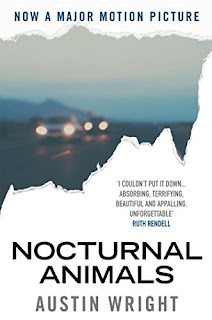"So I officially joined the Life Assistance Agency, that's if financial promise for unspecified services to an unsecured case scrawled across the back of a sports shop flyer was legally binding"
The novel leads on protagonist Ben Fergusson Cripps, part successful novelist and blogger who finds himself making ends meet by working for the bizarre Life Assistance Agency as a private detective of sorts. In the course of investigating a missing academic in Mortlake Ben finds himself on a road trip across Europe with the 16th Century diary of Jane Dee wife of the alchemist, mathematician and astrologer Dr John Dee.
Hocknall's writing style is pacy, accessible and packed with pithy humour; "It felt like being in a Bentley Showroom with a Boot's advantage card". The narrative moves from clue to clue and city to city with sometimes not quite enough time in each place (I could have read much more about the abandoned police station inside Marble Arch). For me some of the historical diary extracts could have been edited slightly to allow more room for the story proper.
All in all this is an ambitious debut novel that explores some pretty heavy and esoteric stuff through the eyes of a contemporary and irreverent protagonist - certainly a cut above the usual fiction on the grab shelves in WH Smith's at the station! Hocknall's voice is unique and though the novel is not perfect it hints and some exciting work to come.
I read this novel on Kindle mostly on the train into Marylebone
The Life Assistance Agency by Thomas Hocknell published by Urbane Publications, 320 pages.









